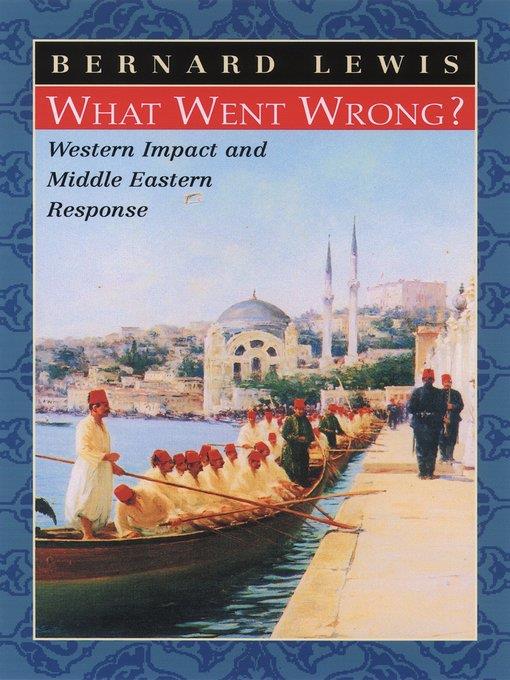
What Went Wrong?
Western Impact and Middle Eastern Response
فرمت کتاب
ebook
تاریخ انتشار
2002
Lexile Score
1370
Reading Level
11-12
نویسنده
Bernard Lewisشابک
9780198032953
کتاب های مرتبط
- اطلاعات
- نقد و بررسی
- دیدگاه کاربران
نقد و بررسی

January 7, 2002
In the fields of Islamic and Middle Eastern history, few people are as prominent and prolific as Lewis, emeritus professor at Princeton. This time around, however, he has written a book with an inconsistent argument and an erratic narrative consisting of recycled themes from his earlier books, a work that sheds no new light on Middle Eastern history or on the events of September 11. His general argument is that Islamic civilization, once flourishing and tolerant, has in modern times become stagnant. This, he contends, has led to considerable soul-searching among Muslims, who ask themselves, "What went wrong?" But while sometimes the author states that there is a critical inquiry into the source of economic weakness in Muslim civilizations, other times he says that, instead of looking into the mirror, Muslims have blamed their problems on Europeans or Jews and thus fed their sense of victimhood. In medieval times, Lewis notes, Muslim civilization transmitted scientific ideas into Europe. But after offering intriguing examples of Muslim physicians and astronomers on the cutting edge in the 13th to 15th centuries, this chapter abruptly ends by stating that in modern times the roles have reversed, leaving the reader baffled over what between the 15th and the 20th centuries may have contributed to this reversal. Thus, the book raises more questions than it answers. Furthermore, Lewis discounts the effects of various decisions made by European and American colonial powers that negatively impacted the development of a democratic political community and a viable economy in the Middle East. Lewis's earlier books, such as The Muslim Discovery of Europe
and The Middle East and the West,
are much more useful for anyone seeking to understand the historical dynamic between these two parts of the world. First serial to Atlantic Monthly.

February 15, 2002
Since its inception in the seventh century, Islamic civilization has remained a significant force in the world. In fact, the Muslim world was a leader in the humanities, arts, and sciences while Europe was still in relative darkness and mired in internecine wars and religious zealotry. The Muslim world was also largely responsible for preserving and transmitting Greek and other Western scholarship to Christian Europe. However, Islamic civilization was eventually overshadowed by the achievements of European Christendom, and much of the Muslim world came under the direct or indirect domination of the West. In this highly readable book, eminent historian Lewis (Near Eastern studies, emeritus, Princeton Univ.) explains Islam's encounter with the West and the Middle East's varied responses to the West's sociocultural and political hegemony in the Muslim world. Like many of Lewis's previous writings on this subject (e.g., The Arabs in History), this book will undoubtedly generate significant debate and disagreement among scholars regarding the author's analysis of Islamic responses to modernity and Westernization. Recommended for academic and large public libraries. Nader Entessar, Spring Hill Coll., Mobile, AL
Copyright 2001 Library Journal, LLC Used with permission.

























دیدگاه کاربران